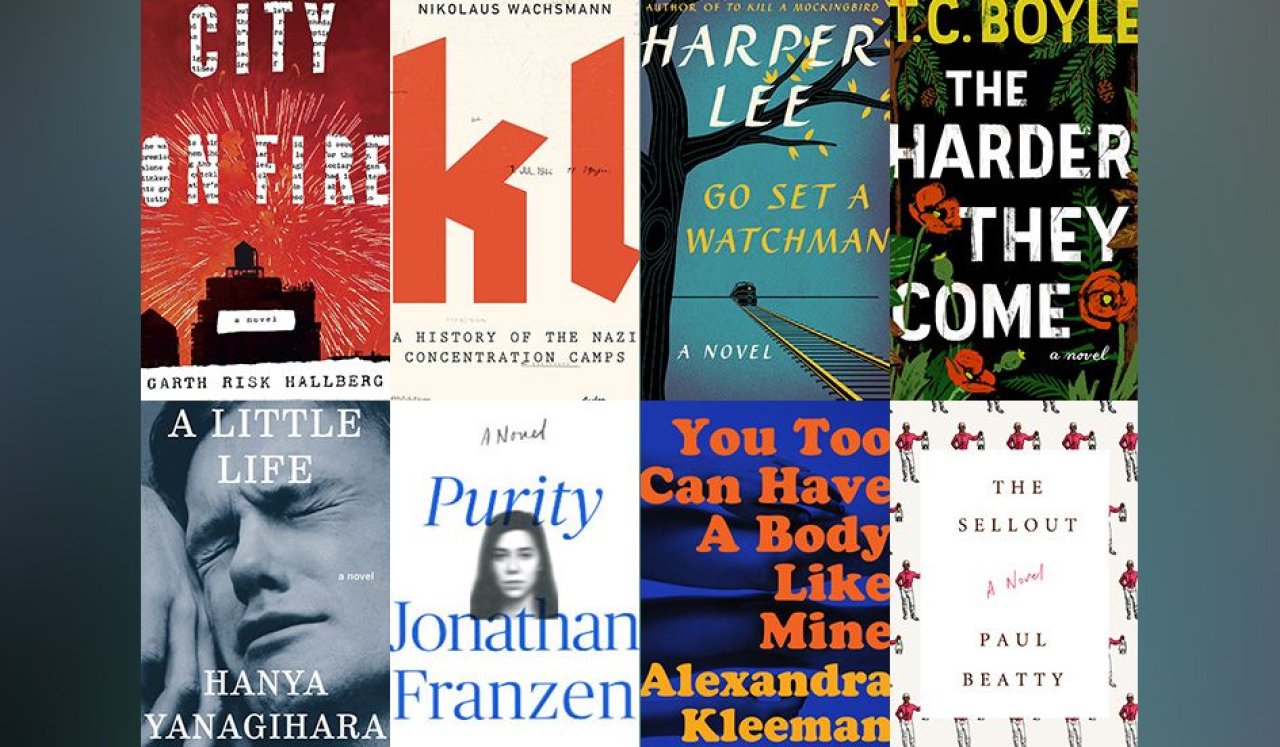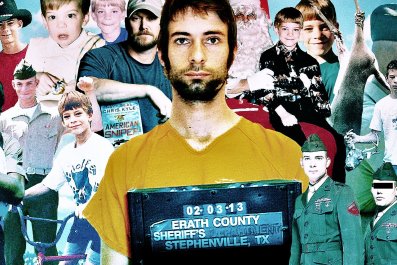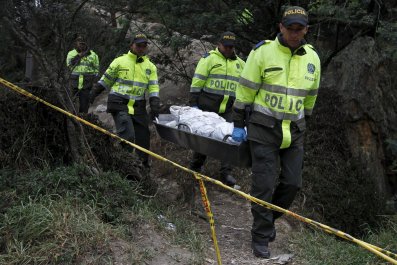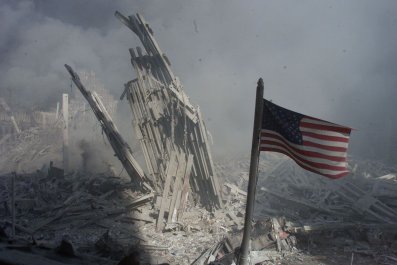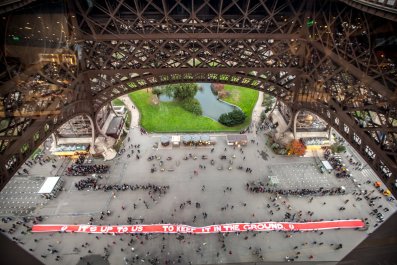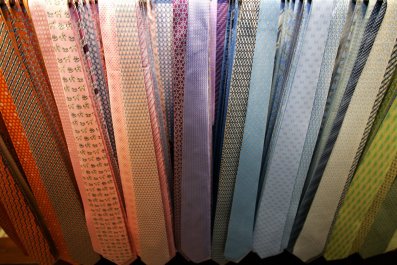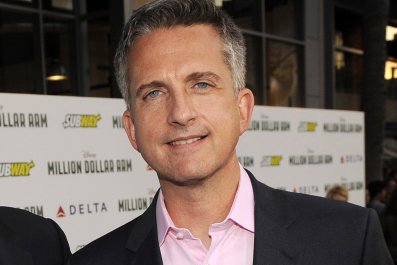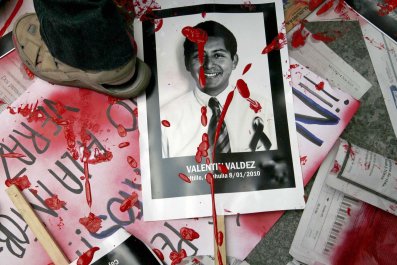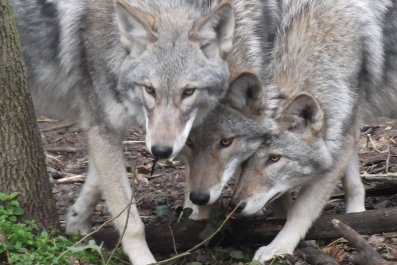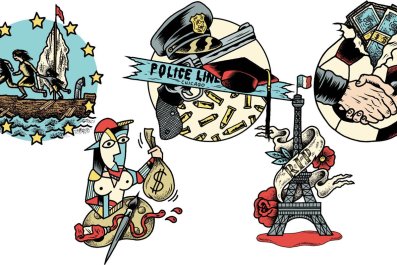Updated | Somehow, the book business has managed to survive yet another year of pronouncements about its demise. It was a strange one, to be sure, with both Dr. Seuss and Harper Lee publishing best-sellers and print achieving unlikely gains against its digital counterpart. There was even a new F. Scott Fitzgerald story and, in the wake of the Paris terror attacks, Ernest Hemingway's A Moveable Feast, a paean to that city, became a best-seller in France. It was all like the good old days before Netflix.
Best Novel of the Year, 700 Pages or Longer
A Little Life, Hanya Yanagihara. Less a novel than a fairy tale set in modern New York, relentlessly plumbing the emotions of four college friends as they became adults. Not everyone has been taken by this novel's dreamy unfurling, but those who allow themselves to be enchanted by Yanagihara won't be disappointed.
Quite simply, no book this year gave me as much pleasure—or pain of the salutary variety. It is the novel I have most frequently recommended this year to those who wonder if the novel still has anything to offer.
Best Novel of the Year, 700 Pages or Shorter
The Harder They Come, T.C. Boyle. Boyle has established himself as our finest West Coast writer—and, simply, one of our finest novelists, going big when so many others have gone small. History, ecology and the intractable qualities of human nature are his frequent themes, and they are blended masterfully here, in one of his best books. Set in the redwoods of far Northern California, The Harder They Come is a family drama, a coming of age story and a clash of cultures that ends in classic American bloodshed.
Most Overrated Novel, Any Length
City on Fire, Garth Risk Hallberg. I will not apologize for being unable to finish this unconvincing 900-page mash-up of Underworld and The Bonfire of the Vanities. Is it the "giant, steaming heap of dung" the New York Post says it is? Probably not. Yet there is too much here, while also not enough, and the New York proffered by Hallberg is about as realistic as the one glimpsed through the window of the Times Square Applebee's. Why did Knopf give him $2 million for this tree-murdering New York kitsch? That, I suspect, will be the novel's only enduring mystery.
Best Novel by Someone Who Is Not a 30-Something White Guy in Glasses Writing a Metafictional Novel About a 30-Something White Guy in Glasses Writing a Novel While Living in Brooklyn and Wearing Glasses
The Sellout, Paul Beatty. This satirical novel about an African-American township in Los Angeles is by far the smartest thing I've read on race this year, by turns hilarious and despairing, propelled by a verbal energy worthy of Vladimir Nabokov. One would have to be immensely talented to fashion a comic episode out of bus segregation. Beatty does, masterfully so. Far more instructive and enjoyable than Ta-Nehisi Coates's pretentious Between the World and Me.
Ballsiest Debut
You Too Can Have a Body Like Mine, Alexandra Kleeman. Many experimental novels are just kind of weird and unpleasant to read. This one, by a young Brown graduate, is strange in the most alluring of ways, following three characters (A, B and C) through a surreal landscape of supermarkets and television commercials. Of the novel's several recurring plot developments—disappearing fathers, the yearning for Kandy Kakes—none is more hilariously or creepily rendered than that of a local veal thief. "Might veal secretly crave its own consumption, thus making its enemies its saviors?" Kleeman's narrator, A, wonders. I have no idea, but I want to keep reading.
Worst Cover
Purity, Jonathan Franzen. I have nothing against the novel itself, but the cover—the hazy black-and-white image of a woman on a white background, with blue letter for the title—looks like it was put together by a hapless high school student on a Macintosh II. One should never judge a book by its cover, but a cover like this doesn't help.
Worst Place to Set Your Novel
Brooklyn. Seriously, enough. Maybe it's time to visit Staten Island? The ferry, after all, is free.
Least Essential Celebrity Biography
This world does not need a Burt Reynolds biography. No iteration of any other world, in either this universe or any universe heretofore undiscovered, will need a Burt Reynolds biography.
Most Stupefyingly Boring Work of History
The Wright Brothers, David McCullough. McCullough is a bad Wikipedia entry made flesh, artlessly stacking facts into arrangements he calls books. The Wright Brothers utterly fails to evoke the mysteries of aviation, or to explain its graceful physics. Worse yet, it doesn't even try.
Most Impressive Work of History
KL, Nikolaus Wachsmann. A thousand page history of the concentration camps of Nazi Germany, from their creation in the early 1930s to their demise in 1945. This is a book for those who love sinking into historical detail, even if that detail is increasingly grim. I can't think of a book published this year that showed such an intense focus of scholarship. Nor one, for that matter, that shows how easily the world can lapse into bloody inhumanity.
Worst Harper Lee Character to Have Named Your Boy-Child After
Poor little Atticus. Maybe your parents should have read Go Set a Watchman first.
Historical Figures Who Do Not Need More Biographies
Hitler, Lincoln, Churchill. "There is no subject so old that something new can not be said about it," Fyodor Dostoyevsky once said. Well, he clearly hasn't seen the glut of forgettable, warmed-over histories that land weekly on my desk. Seriously, unless you've discovered secret records of Hitler prancing along to "Hava Nagila," you're better off finding a new topic. For example, Margaret Thatcher. Almost no books about her.
Most Handsome Book With Weirdest Title
Airline Visual Identity, 1945-1975, Matthias C. Hühne. Incredibly expensive ($450), this is a collection of handsomely reproduced aviation posters from the Jet Age. Flip through this beauty for a few minutes, and you'll imagine yourself sipping a martini as a Pan Am clipper ship takes off for some exotic location.
Most Insane, and Necessary, Audiobook
Gravity's Rainbow, Thomas Pynchon. Technically, a 2014 title, but it came late enough in the year to merit inclusion here. The audiobook is actually from 1986, but it was effectively impossible to find until late last year, when it became available on Audible, thus ready for your iPhone. Narrated pitch-perfectly by a seemingly tireless George Guidall, whose voice wends into your brain like a paranoid, zonked worm. Jog while listening to this and you might end up in some strange, strange corner of town.
Writer With Best Twitter Game
Joyce Carol Oates. Oates not only manages to write, like, 30 books each year, but she sets the Internet aflame with her deadpan musings about the joylessness of ISIS and the cruelties of dinosaur hunting. One wants to believe this is a parody account, but the blue checkmark next to her avatar says otherwise.
Writer With Worst Twitter Game
Joyce Carol Oates. See above.
Best Literary Rumor
That Cow Country, the novel by Adrian Jones Pearson, was actually written by Thomas Pynchon. It wasn't...but maybe it was? I mean, he could have written it. He probably wrote it. He wrote it, didn't he? HEY GUYS, THOMAS PYNCHON TOTALLY WROTE A NEW NOVEL UNDER A PSEUDONYM...Possibly.
Surest Sign That the Apocalypse Is Truly Upon the Human Race
Correction: This article originally misspelled the last name of Adrian Jones Pearson.



